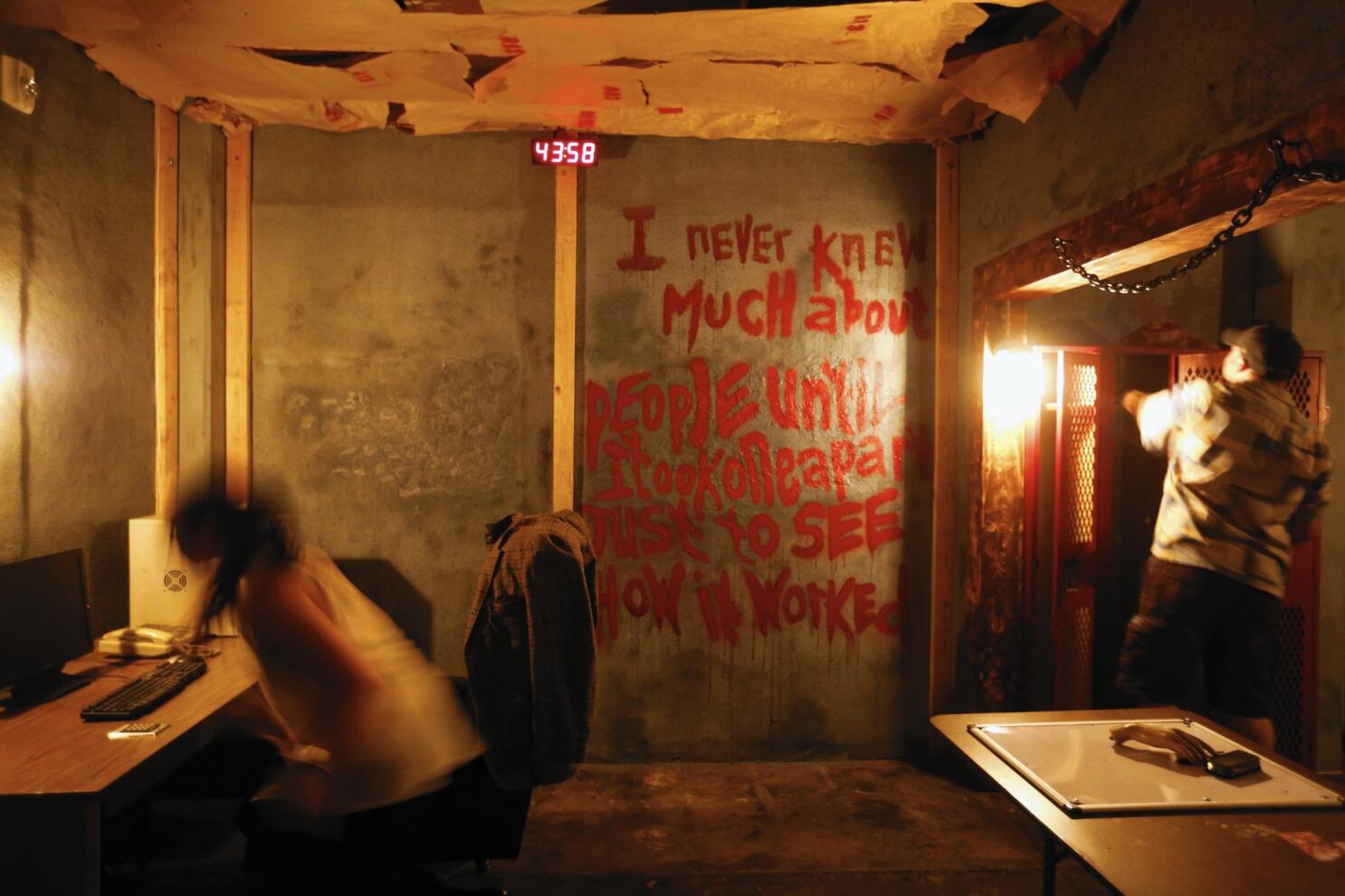Best Escape Room Experience-- Exciting Games and Puzzles for Teams
Best Escape Room Experience-- Exciting Games and Puzzles for Teams
Blog Article
Group Methods: How to Team up Efficiently in an Escape Room
Teams have to actively listen to each member's understandings, appoint roles that align with specific toughness, and maintain routine check-ins to guarantee emphasis and prevent redundancy. By promoting an atmosphere that values communication and versatility, groups can significantly heighten their effectiveness and success rates.
Establish Clear Interaction

To help with clear interaction, it is important to mark a main point of call for info dissemination. Short, concentrated updates from each team member can keep the group informed without overwhelming them with info.

Appoint Roles Tactically
While clear communication establishes the foundation for effective team effort, assigning roles tactically makes sure that each group member's toughness are used successfully. In an escape room situation, the time-sensitive and complicated nature of obstacles necessitates a well-organized approach to task delegation. By identifying and leveraging private competencies, teams can enhance their problem-solving abilities and boost overall performance.
Somebody with an eager eye for information may stand out in finding surprise things, while a sensible thinker could be better matched to fixing problems. This function often needs strong business and interpersonal skills.
2nd, guarantee that duties are flexible and versatile. As new difficulties arise, the team needs to have the ability to pivot, reapportioning jobs as needed. This versatility aids keep momentum and protects against traffic jams that could occur as a result of rigid duty projects.
Inevitably, a tactical technique to function task not only takes full advantage of the staminas of each group participant however also promotes a cohesive atmosphere, driving the group towards an effective getaway.
Make Use Of Diverse Skills
Acknowledging and taking advantage of the varied abilities within your group can considerably elevate your performance in a retreat area. Each employee brings unique strengths to the table, Look At This and efficiently leveraging these capacities can expedite analytic and improve total efficiency. A team participant with solid analytical skills may succeed at understanding complicated codes or patterns, while one more with keen empirical abilities might rapidly detect surprise hints that others could neglect.
Urge group members to articulate their insights and ideas without delay, ensuring that all possible services are taken into consideration. Furthermore, designating tasks that straighten with each participant's strengths can protect against bottlenecks and guarantee that progress is continuous.
Moreover, variety in abilities commonly converts to variety in assuming designs, which is indispensable in an escape area setup. While some difficulties go to my blog might call for rational reasoning and accuracy, others may gain from creative and side reasoning. By acknowledging and leveraging this variety, groups can attend to a broader range of difficulties a lot more properly, therefore enhancing their possibilities of an effective getaway.
Manage Time Effectively

Recognize noticeable puzzles and separate tasks based on group members' toughness, ensuring that no one is still. This method can help keep the group concentrated and prevent time from slipping away unnoticed.
Additionally, avoid one-track mind. If a challenge is taking also long, revolve team participants or proceed to an additional obstacle, returning later on with fresh perspectives. Communication is extremely important-- maintain everyone upgraded on solved problems and continuing to be tasks to prevent redundant initiatives.
Lastly, make use of any kind of tips or clues sparingly yet strategically - best escape room. Recognizing when to request look at here for assistance can save valuable time. By adhering to these time monitoring principles, teams can substantially boost their possibilities of a successful and pleasurable escape space experience
Debrief and Show
Reflection is a vital element of team advancement and renovation in the context of retreat rooms. When the difficulty is finished, whether successfully or not, it is essential for the group to take part in a structured debriefing session. This procedure allows group members to analyze their efficiency, determine staminas, and identify locations for improvement.
Start the debrief by reviewing what worked out. Highlight specific instances of reliable interaction, problem-solving, and partnership. Acknowledging these favorable behaviors strengthens them and urges their repeating in future challenges.
Next, attend to the obstacles came across. Go over minutes of complication, miscommunication, or ineffective strategies. Urge an open and useful dialogue where employee can share their perspectives without anxiety of criticism. This fosters a culture of continual improvement and knowing.
Verdict
To conclude, effective collaboration in an escape space is based upon clear interaction, critical duty assignments, the efficient application of diverse skills, and efficient time monitoring. Regular check-ins and structured debriefings are vital for preserving emphasis and promoting continual improvement. By developing a cohesive and flexible team setting, the chance of effectively fixing problems and achieving the goal of escaping the room is significantly improved. This approach not only makes sure success but additionally advertises cumulative development and learning.
Report this page